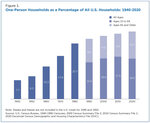
Nostalgic songs, visiting family and reminiscing over Christmas make the holiday season a favorite for many seniors. For some, however, the holidays can make them feel isolated.
Loneliness is a problem for many seniors, which can impact mental and physical health, said Doctor Jillian Stansbury, owner of Battle Ground Healing Arts. Mental health is one of her specialties.
“Many elders can feel left out, and it’s partly because people’s lives are busy,” Stansbury said.
Loneliness is more than an emotional issue; it has real implications for physical and mental health, according to the National Council on Aging.
“Recent research has shown that feeling lonely or being isolated affects mortality in a similar way to that of a smoking habit of 15 cigarettes per day, and has more of an impact on mortality than other risk factors, like obesity and sedentary lifestyle,” the National Council on Aging states on its website.
As more seniors live alone, loneliness may become an increasing issue. The U.S. Census Bureau estimated in 2020 that 11.1% of people over 65 live in a one-person household.
Helping seniors feel included and loved during the holiday season can combat loneliness, Stansbury said. People should keep them involved in the conversation and plan activities that keep them engaged with loved ones.
Hearing loss is a major obstacle for many seniors, as well. Difficulty hearing can make participating in conversations stressful. Stansbury recommends keeping music at a low volume and speaking clearly when speaking to the elderly.
“It can get confusing or just difficult to discern what is being said,” Stansbury said. “I think we should remember to sit close and talk directly to the people, as well as make sure they can see your mouth. The visual supplementation of seeing lips is important,” Stansbury said.
Conversing about familiar topics can also help seniors feel loved and included, Stansbury said. Long discussions about unfamiliar topics can leave them feeling alienated.
“Reminiscing is better,” Stansbury said. “Talking about Christmas memories, their childhood, their favorite present or things mother used to bake. Things like that really help elders feel a part of it, to feel respected and heard.”
Reminiscing can be particularly powerful for seniors with dementia, Stansbury said. Older memories are easier to recall. Music can be particularly easy to remember.
“In many cases, people with dementia cannot learn new information. But, they can remember their childhood,” Stansbury said. “Sometimes people can remember the words to ‘Jingle Bells,’ but not the grandkids’ names.”
Stansbury encourages families to be patient with their senior loved ones, especially if they have dementia.
“Often people with dementia are confused about the timelines of things. They might not even remember if you say ‘‘the grandchildren are coming over this morning,’ or might not remember that ‘We’re going to open Christmas presents this afternoon,’ ” Stansbury said.
Positively framing forgetfulness without getting upset helps the whole family. Instead of asking ‘Don’t you remember,’ remind your senior loved ones about what’s happening, Stansbury said. “[Negative wording] can put some people on the defensive and make them irritable or ashamed and like they’re not included,” Stansbury said.
Stansbury wishes more programs were available for lonely seniors who need a little Christmas cheer. A few programs exist, like Meals on Wheels and the “Be a Santa to a Senior” program by Home Instead. Stansbury would like to see more programs available for seniors and their caregivers.
People who are struggling with a mental health crisis or emotional distress during the holiday season should call or text the 988 Suicide and Crisis Lifeline. It is free, confidential and available 24 hours a day.